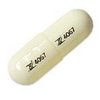INDICATIONS
Prazosin is in a group of drugs called alpha-adrenergic (AL-fa ad-ren-ER-jik) blockers. Prazosin relaxes your veins and arteries so that blood can more easily pass through them.
Prazosin is used to treat hypertension (high blood pressure).
Prazosin may also be used for other purposes not listed in this medication guide.
INSTRUCTIONS
Take exactly as prescribed by your doctor. Do not take in larger or smaller amounts or for longer than recommended. Follow the directions on your prescription label.
Your doctor may occasionally change your dose to make sure you get the best results.
Prazosin lowers blood pressure and may cause dizziness or fainting, especially when you first start taking it or whenever your dose is changed. Call your doctor if you have severe dizziness or feel like you might pass out.
You may feel very dizzy when you first wake up. Be careful when standing or sitting up from a lying position.
Your blood pressure will need to be checked often. Visit your doctor regularly.
Keep using this medicine as directed, even if you feel well. High blood pressure often has no symptoms. You may need to use blood pressure medication for the rest of your life.
Some things can cause your blood pressure to get too low. This includes vomiting, diarrhea, heavy sweating, heart disease, dialysis, a low-salt diet, or taking diuretics (water pills). Tell your doctor if you have a prolonged illness that causes diarrhea or vomiting.
DOSAGE
Takethe medicine as prescribed by your doctor.
Usual Adult Dose for Congestive Heart Failure:
Initial dose: 1 mg orally 2-3 times a day.
Maintenance dose: 6-15 mg daily given in divided doses.
Usual Adult Dose for Hypertension:
Initial dose: 1 mg orally 2-3 times a day.
Maintenance dose: 6-15 mg daily given in divided doses.
Usual Adult Dose for Benign Prostatic Hyperplasia:
Initial dose: 1 mg orally 2-3 times a day.
Maintenance dose: 6-15 mg daily given in divided doses.
STORAGE
Store at room temperature away from moisture and heat.
MORE INFO:
Active Ingredient: Prazosin
Alpha blocker: A drug that blocks receptors in arteries and smooth muscle. This action relaxes the blood vessels and leads to an increase in blood flow and a lower pressure for the control of hypertension. The action in the urinary tract enhances urinary flow in prostatic hypertrophy (enlarged prostate).







